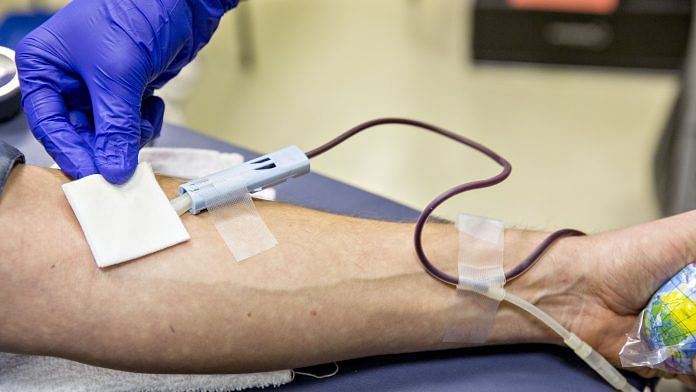In 2005, the World Health Assembly adopted 14 June as World Blood Donor Day, to thank blood donors across the world, encourage more people to donate blood and raise awareness about the need for safe blood and blood products.
Access to safe blood has long been a problem in India, but that has been compounded severely by the Covid-19 pandemic and lockdown.
In early April, the Indian Red Cross Society had raised an alarm that voluntary donation had fallen by almost 100 percent. This isn’t surprising, given that the number of Covid cases is rising, making infected people and those who come into contact with them ineligible to donate, apart from the fact that people have not really stepped out of their home in three months.
The Ministry of Health and Family Welfare has now issued guidelines for safe donation of blood during the ongoing pandemic. It states that no cases of transfusion-transmission has been reported, and as such, blood donation can still be done after following guidelines for the safety of both donors, and the organisers of blood donation drives.
Apart from major medical and surgical procedures needed to save lives in the case of a disease or accident, blood is vital during any kind of natural disaster as well as in maternal care. And those who have disorders like thalassemia and require regular blood transfusions, are especially vulnerable during a blood shortage.
Also: World Day Against Child Labour: Covid and reverse migration could push more children to work
India’s blood problems
In India, anyone above 18 years of age is allowed to donate blood as long as they fulfil certain physical and health criteria. While men can donate blood safely once in every three months, women can donate every four months, but more than half of India’s women are anaemic, according to obstetrician Subhasri Balakrishnan.
The World Health Organization recommends that donation by 1 per cent of a country’s population would suffice for its blood needs. A 2019 report referred to a study by The Lancet that said India battled a shortfall of 41 million units, and that was well before Covid.
Even before the 21-day lockdown began on 25 March, the Maharashtra health minister had announced that there was a shortage of blood and appealed to more people to come forward and donate. Since the lockdown, West Bengal and Odisha too have reported similar situations.
The wasted blood that could have saved lives
Every year, India wastes about 6.5 lakh units of blood and blood components. Blood is considered to be wasted when it cannot be transfused to a patient. The primary factors that lead to blood being wasted are deterioration during storage and expiry, but can also be due to issues such as broken bags and/or seals, contamination under donations, clotted donations, delays in conducting tests due to staff shortage and improper transport.
While whole blood and red blood cells with or without additives have a shelf life of 35 days, plasma can last for a year, but platelets must be used within five days.



